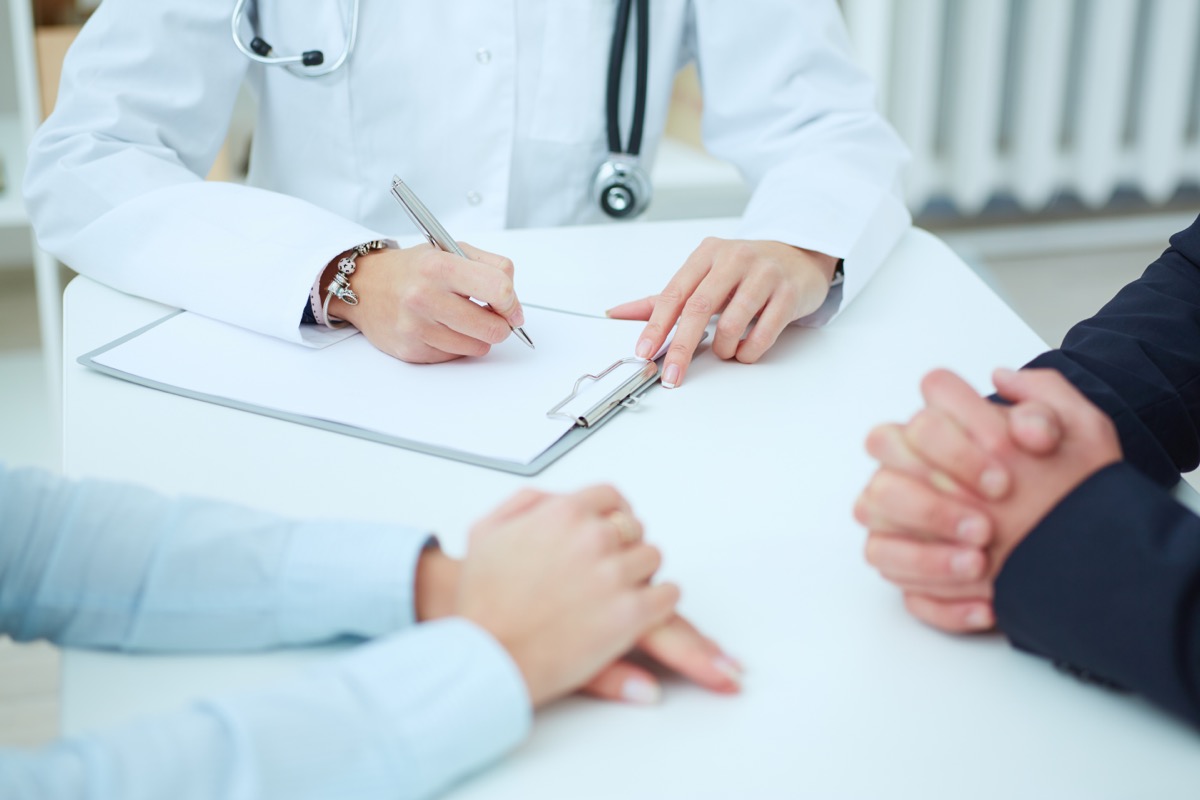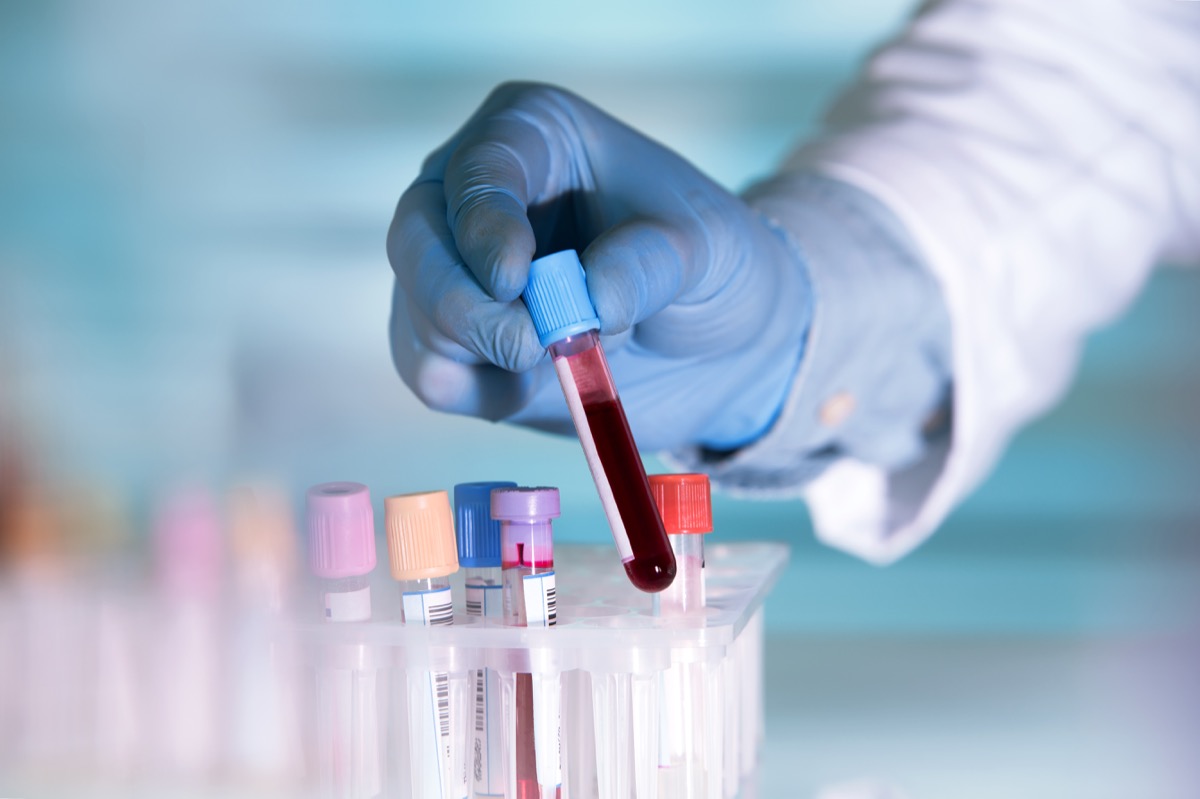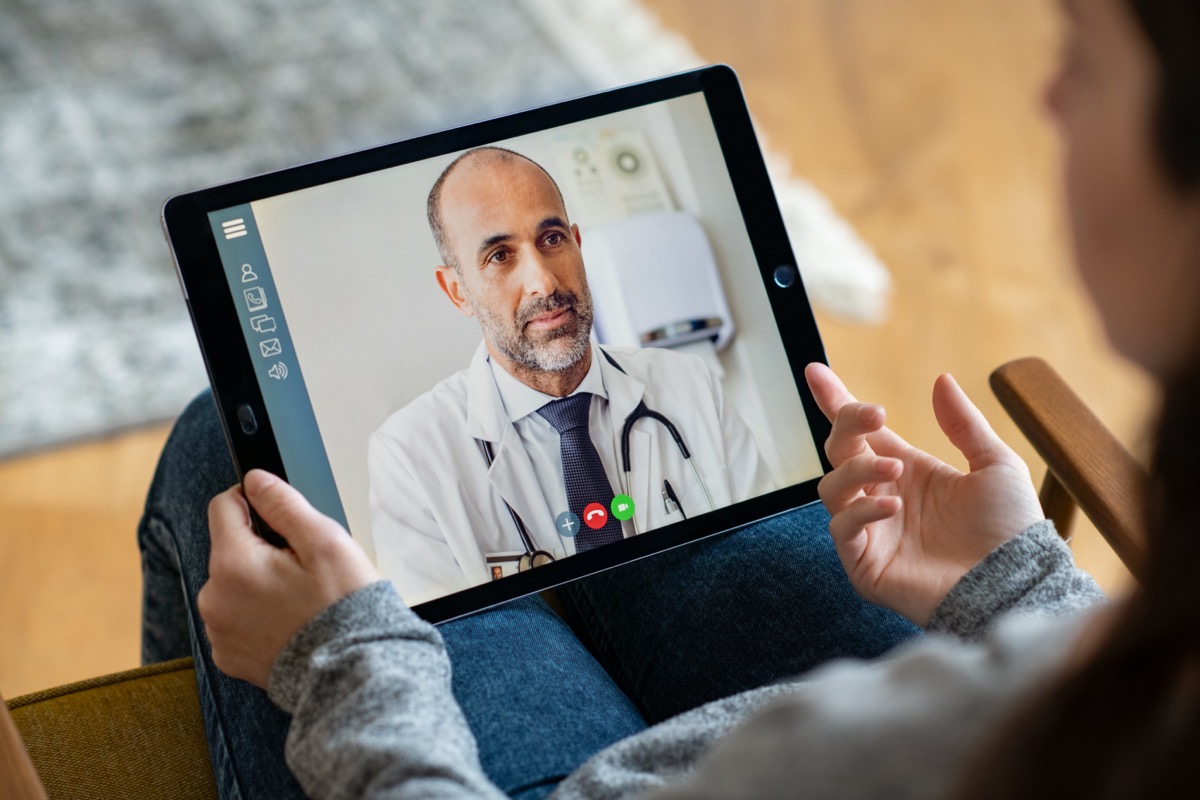Stomach Cancer Risk Spikes With This Blood Type
Every year in the U.S., doctors diagnose over 26,000 new cases of stomach cancer, also known as gastric cancer. Though it used to be the leading cause of cancer death in America, stomach cancer now accounts for just 11,000 deaths per year thanks to two major societal breakthroughs, explains the American Cancer Society. First, the rise of food refrigeration has led Americans to eat less salted and smoked food—a known risk factor for this type of cancer. Second, fewer Americans are infected with Helicobacter pylori (H. pylori) infection, a form of bacteria which is a major cause of gastric cancer.
As it turns out, the latter factor—H. Pylori infection—may be more common in people with one particular blood type, researchers say. Read on to find out if your blood type may put you at higher risk of stomach cancer, and when it’s time to call the doctor.
READ THIS NEXT: This Is the No. 1 Colon Cancer Symptom People Ignore, Doctors Warn.

Gastric cancer cells usually begin developing in the inner lining of your stomach, then spread deeper inside the stomach walls. Besides having a family history of stomach cancer, several underlying conditions can also raise your risk of these cells developing, the Cleveland Clinic says. These conditions include gastroesophageal reflux disease (GERD), gastritis, Epstein-Barr virus infection, stomach ulcers or stomach polyps, autoimmune atrophic gastritis, and obesity.
Environmental factors, including lifestyle habits, can also have a significant impact on your stomach cancer risk. Besides eating salted, smoked, or pickled foods, eating a diet that lacks adequate fruits and vegetables, using tobacco products, drinking excessive alcohol, and being exposed to substances like coal, metal, and rubber can all increase your chances of developing cancer.
Finally, there are a handful of genetic conditions linked with increased gastric cancer risk. According to the Cleveland Clinic, those include having Lynch syndrome, Peutz-Jeghers syndrome, Li-Fraumeni syndrome, Familial adenomatous polyposis, hereditary diffuse gastric cancer, or common variable immunodeficiency (CVID).
READ THIS NEXT: If This Happens to You in the Bathroom, Get Checked for Cancer, Doctors Warn.

One other genetically inherited factor may influence your stomach cancer risk: your blood type. “Stomach cancer is more common in people with Type A blood,” says the Cleveland Clinic. Though the link between Type A blood and stomach cancer was first noted in the 1950s, scientists are still working to understand the exact nature of the association.
Some researchers believe that having Type A blood increases stomach cancer risk by making those individuals more susceptible to H. pylori infection. “Our study concluded that there was a slightly increased risk of gastric cancer in blood group A individuals, and people with blood type A are more prone to be infected by H. pylori than other ABO blood type individuals, whereas, a slightly decreased risk of gastric cancer was identified in blood type O individuals,” explains a 2012 study published in the International Journal of Molecular Sciences.

While it’s important to be aware of the factors that may raise your risk, stomach cancer can develop in anyone. That’s why it’s important to know the signs even if you believe your risk is low.
According to the Mayo Clinic, symptoms of gastric cancer can include having difficulty swallowing, feeling bloated after eating, feeling full after eating small amounts of food, heartburn, indigestion, nausea or vomiting, abdominal pain, and unexplained weight loss.
For more health news sent directly to your inbox, sign up for our daily newsletter.

Doctors do not typically perform routine screenings for gastric cancer in the U.S., since rates of this type of cancer are comparatively low. However, you should contact your doctor about a screening if you believe you may be showing symptoms of gastric cancer, or if you have a condition that increases your risk.
Speak with your doctor to discuss whether scheduling a regular upper endoscopy could help detect any potentially dangerous changes in your digestive system.
" Conservative News Daily does not always share or support the views and opinions expressed here; they are just those of the writer."

Now loading...